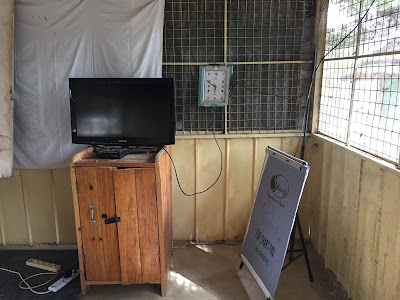Maureen recently spent a few weeks in California and participated in a meeting of the MBB Board. She's pictured here at "Land's End" in San Francisco with board member Shirley Tamoria, MD. Land's End, you say??? Surely that describes S.Sudan more than San Francisco!
PS: If you are ever planning a safari to Maasai land in Kenya, contact Maureen first. She taught most of those safari guides when they were in school.





